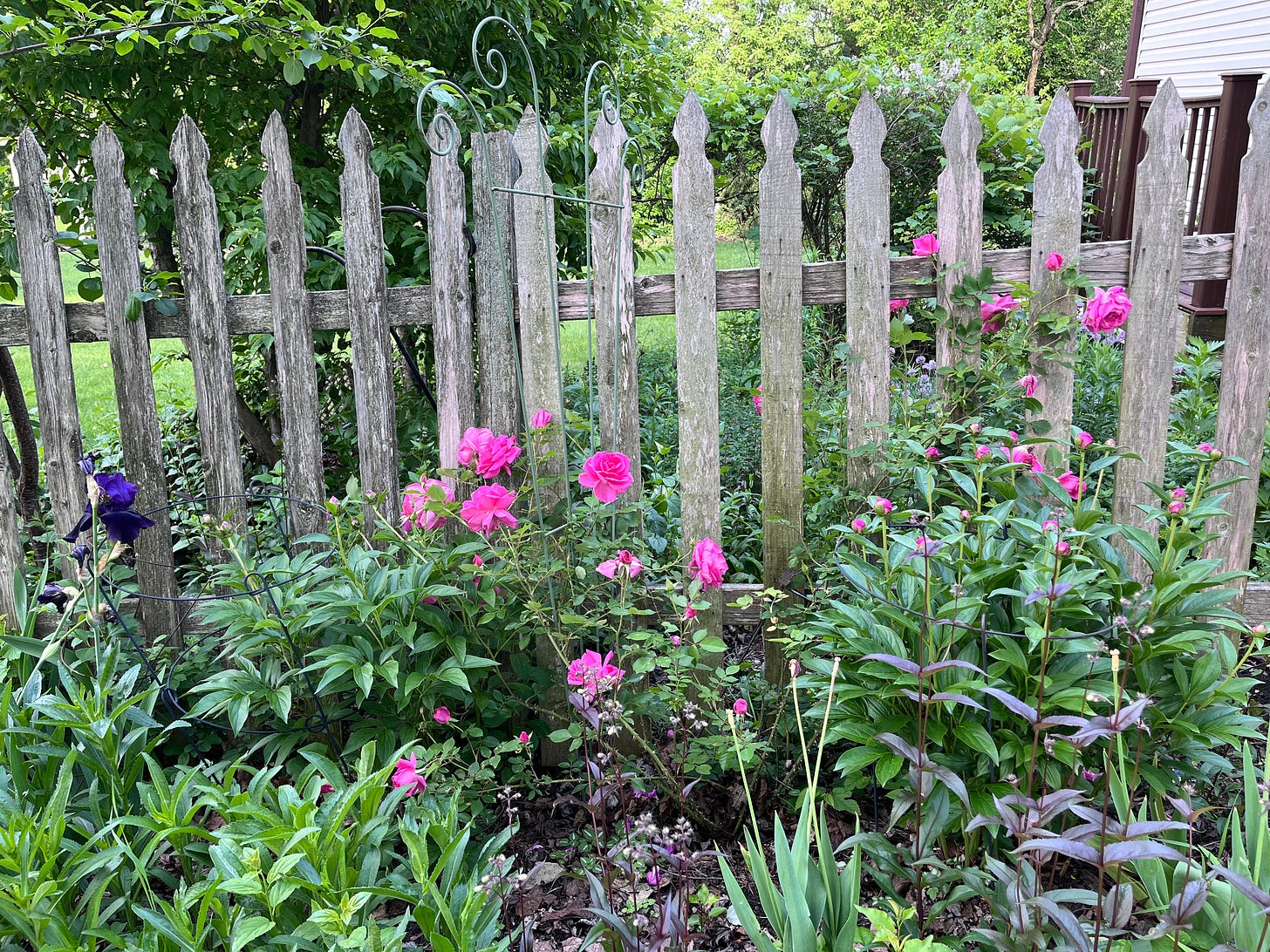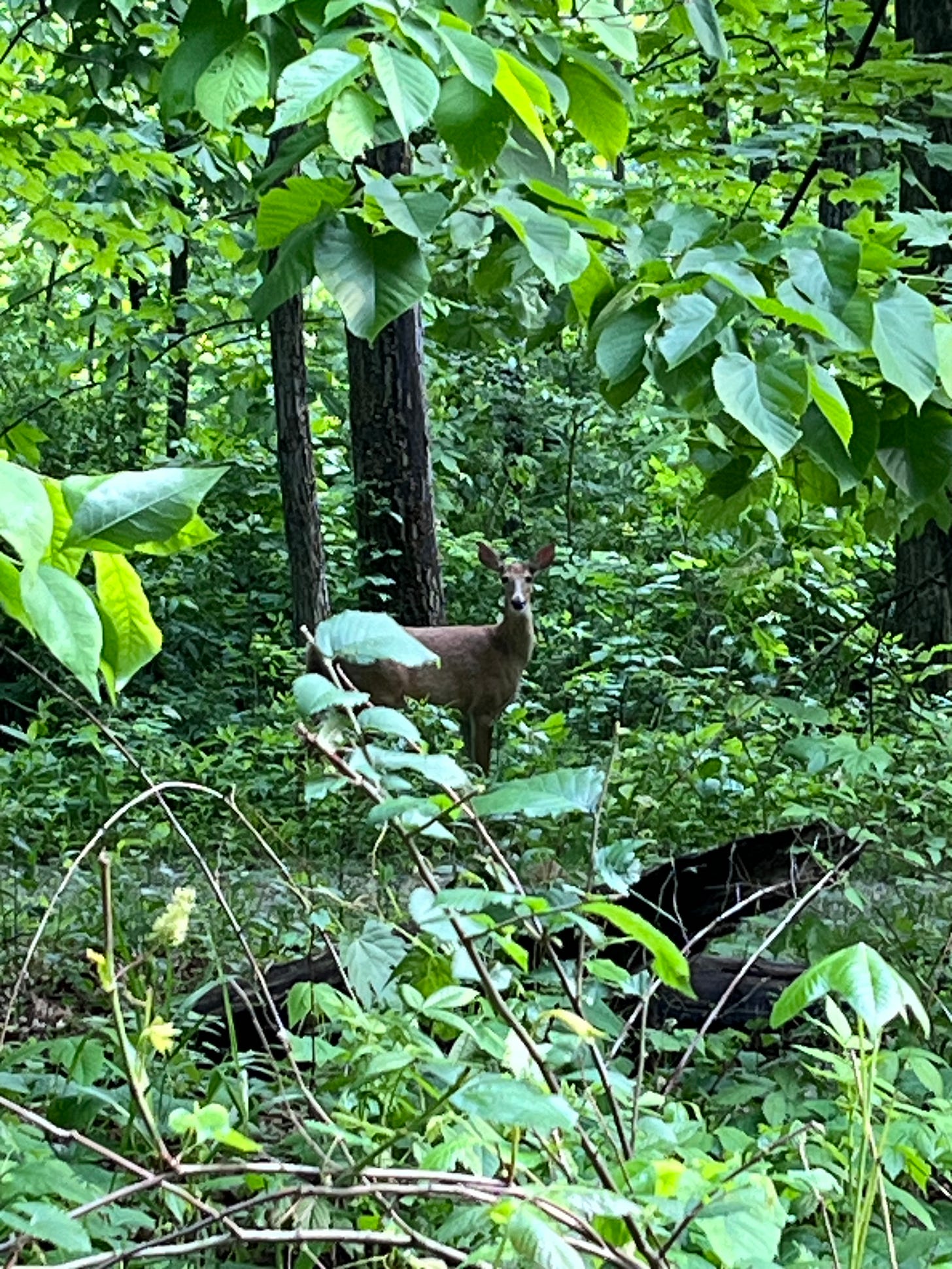If you’ve been writing for more than a year, answer a quick question: what happens to your writing life in the summer? is it easier or harder to write? If you live with your children, the answer might seem obvious.
But this season doesn’t have to be one of drought for your writing. It can be productive and joyful, if you approach it with intention. Today, I want to share three strategies for summer writing.
Summer, in the physical world, is a time of growth and productivity. Trees leaf out, almost overnight. Flowers bloom in rapid succession. My spring bulbs have given way to the next wave—roses and peonies. The herb garden is coming back after a harsh winter.
Summer can be a time of growth and productivity for your writing as well, if you are deliberate. Perhaps that begins with seeing your writing life as seasonal. And then, being strategic about each season.
My garden didn’t just appear in my yard. I had to plant, prune, fertilize. Some flowers were here when we moved in 25 years ago, but I had to nurture and care for them to keep them going. You know where this is headed, right? Summer is the time when I reap the benefits of the work I’ve done to cultivate.
I don’t get mad or frustrated with my roses if they somehow can’t manage to bloom in January, when we sometimes get temps below zero. To everything there is a season, for roses and for writers. I trust this.
These roses have been blooming for decades—they were here when I moved into our home.
Summer might seem a time when kids, travel, and opportunities for outdoor adventures would distract from your writing. But it can be a time of growth and beauty in your writing life. Here are some simple ways to make that happen.
Love the light. Where I live, the sun will rise tomorrow at 5:17 a.m., and not set until almost 8:30 p.m. I don’t know about you, but it is much easier for me to get up if it’s light out and the birds are noisily greeting the day. Rising early in cold winter darkness is just harder.
Get up early—even just two or three days a week. Heck, even once a week. But be deliberate about it. Take advantage of the dawn’s early light to spend an hour writing before other people in your household awaken, or before you have to go to your day job. Yeah, getting up at 5 a.m. means you’re going to want to go to bed right around sunset. But spending an hour or two writing early in the morning means you can relax on a summer evening knowing you’ve gotten words on the page already.
Soak in scenery. I live in the Midwest. We have ugly winters—either snowy or just brown and grey and blah. Even in the sepia-toned winters, I make myself get outside. Breathe fresh air, even if the view is not inspiring.
The deer are cute but the woods are kind of blah in winter, yes?
Summer, on the other hand, requires much less willpower. The season draws me irresistibly into the forests and fields. I love being in the woods, which are exploding with wildflowers and a thousand different hues of green.
The same woods (quote possibly the same deer) in June.
The pull to get outside might feel counterproductive. But I find spending time in nature fuels my creativity. Writers need to see and experience beauty. Don’t resist that pull to surround yourself with simple but beautiful things. Take a walk, stroll in a botanic garden or nature center. Let beauty inspire you, let nature’s bounty fill your mind. Nurture your creativity by admiring creation.
Ignite your imagination. Writing, even nonfiction, requires a rich inner life, an active imagination. Sometimes, the pressures of adulting disconnect us from our childlike wonder and imagination that fuels our creativity. A surprising solution? Daydreaming. On purpose. Go to your backyard or a park, spread out a picnic blanket, and just stare up and the trees and clouds, and let yourself get lost in thoughts and dreams. Or walk through your city or town, without purpose, and simply notice and linger. Summer is a great time to get out and explore a new neighborhood, go to an outdoor concert, visit a small town that would be the perfect setting for your novel. Once a week, schedule a time for daydreaming. Focus on nurturing your soul, not raising productivity. (You know it’s actually going to make you more productive when you stop striving, right?)
Photo by jasmin chew: https://www.pexels.com/
Summer can be a productive season for writers, but it requires intention. And a willingness to reframe what activities are actually “productive.” These three strategies can help.
How about you? How do you nurture the writing life during the summer? What intention do you want to set today for this writing season?








